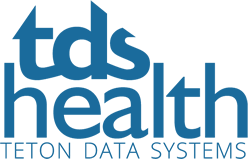Pediatric Collections: Social Determinants of Health

Description
This collection focuses on three categories of social determinants of health. Youths who are negatively affected by social determinants of health suffer adverse effects like increased risks of chronic health conditions and mental health issues.
Part 1: Underserved Communities - This category describes many underserved communities and the various ways their status affects their health. Members of these vulnerable communities include foster children, runaway youths, immigrants, Black, Latinx, Native Americans, other children from minority racial groups, LGBTQ+ youths, and children living in poverty. This collection describes the challenges faced by each of these populations and how that adversity shapes their present and future health.
Part 2: Effect of Inequity - This category describes the adverse effects social determinants of health can have on vulnerable children around the world. The impact of social determinants such as racism, discrimination, poverty, and limited access to care can lead to adverse effects such as poor mental health, diabetes, heart disease, substance abuse, complications during childbirth, suicide, and unexpected death. This collection describes the ways in which these social determinants can produce negative outcomes for children in the present and future.
Part 2: Effect of Inequity Doody's Review - 94/4
"This book gives an outstanding foundation for novices to experienced clinicians in any field interacting with children and families. There are multiple risk factors for children outside of the brick-and-mortar schools and clinics: the pervasive social determinants of health. Children are resilient; however, in our society, there are multiple disparities in basic needs (housing, food, and education), which require immediate attention."
-- Ellyn Cavanagh, Ph.D., MN, BSN (Tender Care Pediatric Services, Inc.)
Part 3: Promoting Health Equity - This category describes ways pediatricians can help fight these social determinants to promote health equity for our most vulnerable children. The causes and effects of social determinants of health are well-documented. Individual and group interventions such as screening, establishing community partnerships and a culture of diversity, equity, and inclusion, and eliminating barriers to quality health care are highlighted in this collection and can go a long way toward ensuring that all children get the care they deserve.
Part 3: Promoting Health Equity Doody's Review - 100/5
"This is an outstanding book that is necessary for the development of a community-based healthcare system to improve pediatric population health. New strategies are needed to recognize, measure, and intervene with families of children experiencing inter-generational poverty, systemic racism, and structural inequities. This level of transformation demands a focus on addressing adverse social conditions with respect for families' autonomy and priorities. The book identifies approaches to screening for social determinants of health, trauma, and adversity with information to promote whole-child wellness and prevent illness. Diversity and inclusion for women and minorities in medicine are also presented with specific interventions."
-- Ellyn Cavanagh, Ph.D., MN, BSN (Tender Care Pediatric Services, Inc.)
Doody's Reviews
Quotes, Reviews or Testimonials
Part 1: Underserved Communities
"This book is informative, clinically relevant, and written to encourage both practice and policy changes. The American Academy of Pediatrics has used the leadership role to develop this series of peer-reviewed publications to advocate for high-quality pediatric care. This means addressing childhood poverty as the number one factor in the social determinants of health and shedding light on strategies to improve care regardless of social class, personal history, or cultural, spiritual, gender, racial, or ethnic identity. There are three policy statements (Poverty, Immigration Care, American Indian/Alaska Native Care) and each provides readers with an understanding of the issues, relevant statistics, and practice-level recommendations. These provide core knowledge and a foundation."
-- Ellyn Cavanagh, Ph.D., MN, BSN (Tender Care Pediatric Services, Inc.) Doody's Review
Audience
Part 1: Underserved Communities
The book is written for practitioners involved with maternal-child care in the healthcare setting, specifically low-income family healthcare centers in communities with higher rates of poverty, tribal health, juvenile justice settings (such as detention), and any setting serving refugee or immigrant populations. The book is the first of three published by the American Academy of Pediatrics; however, it is relevant to family practitioners, advanced nurse practitioners, and social workers and is written at a graduate level. It meets the needs of the above groups as it provides clinical insight about how to recognize and screen for SDoH and suggestions about how to advocate for the children/youth and mitigate the adverse effects. All authors are credible and have invested years of research in their subject areas. All articles have been peer reviewed and accepted for publication.













